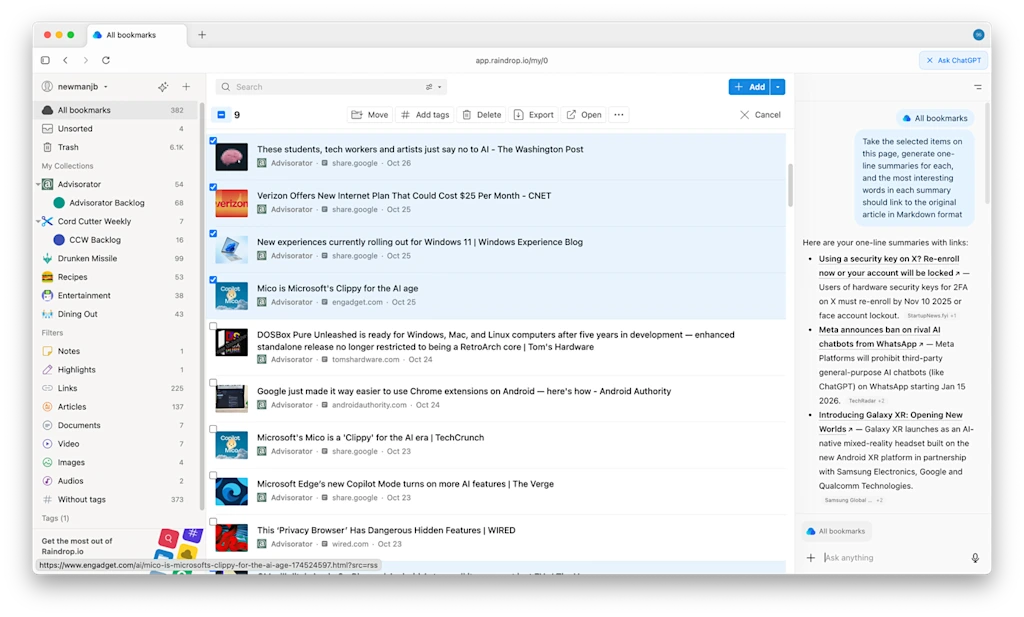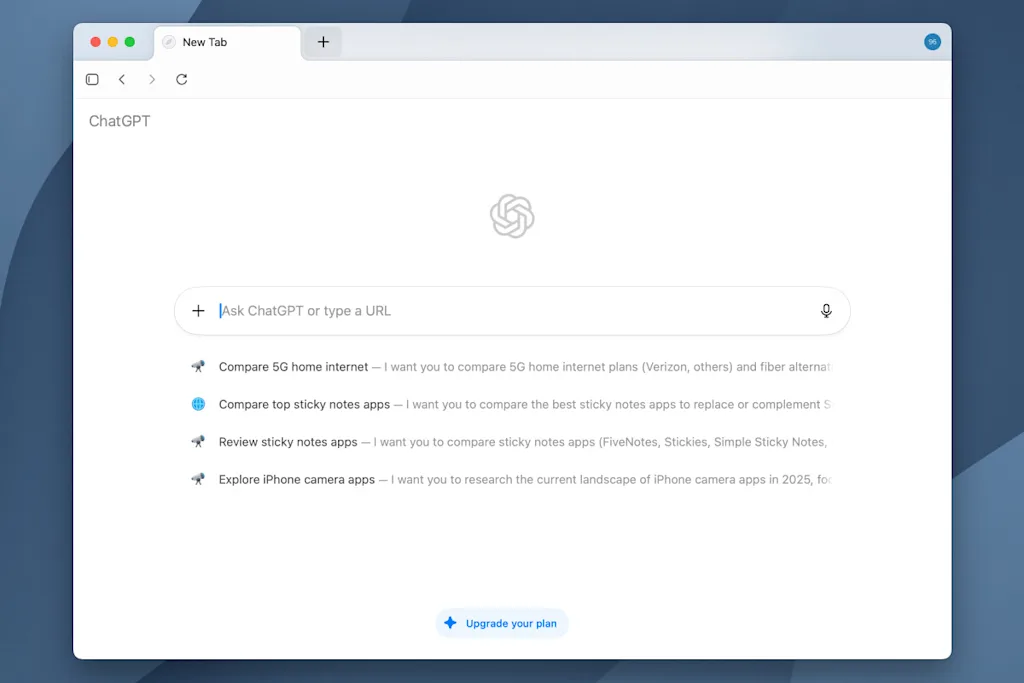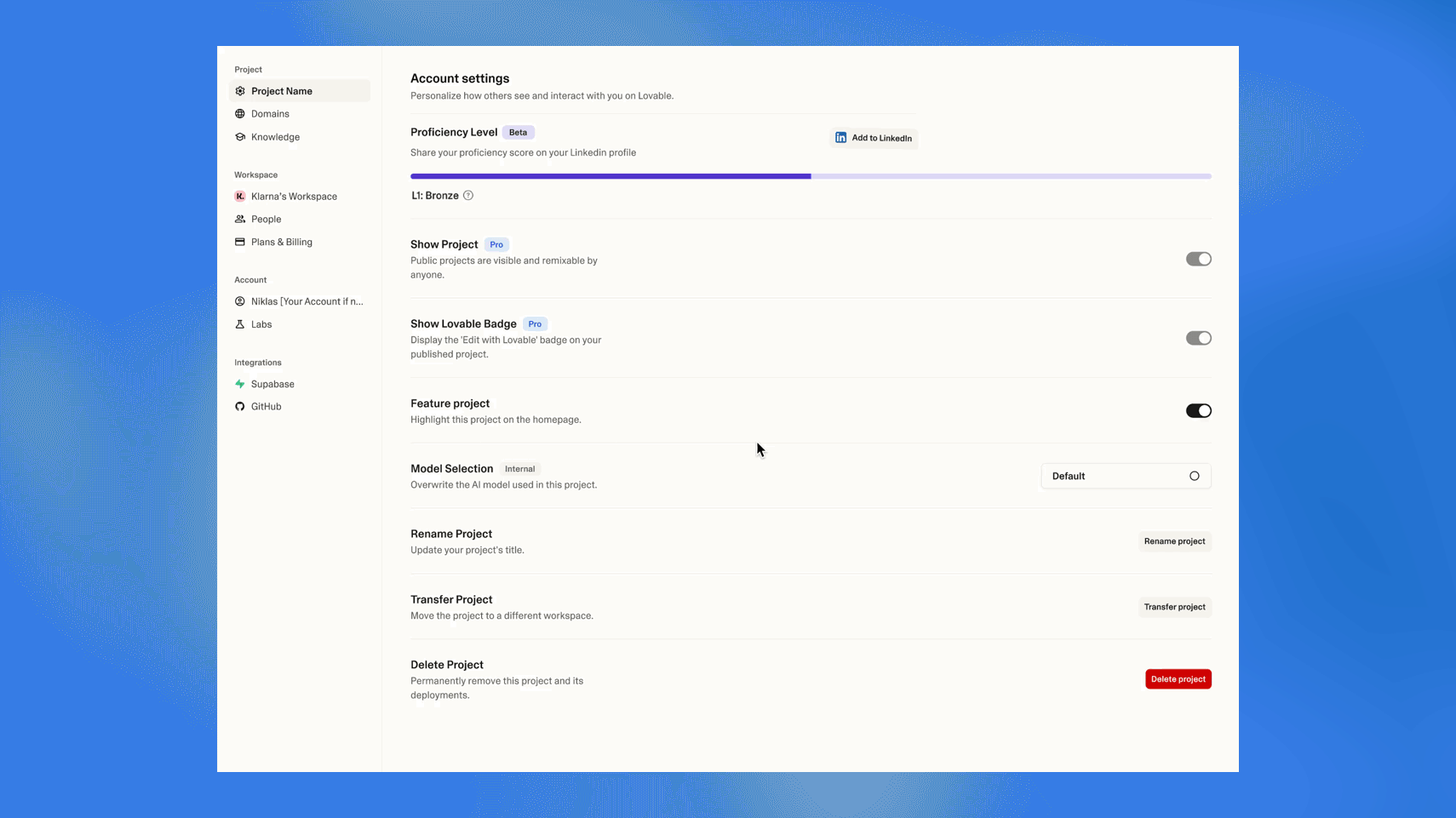Earlier this week, I had AI handle all of my grocery shopping.
Using Perplexity’s Comet browser, I provided a link to my shopping list on Google Keep, then asked it to put everything in my cart for a Kroger pick-up order, making sure to select previous purchase items when multiple options are available. Within a few minutes, Comet had picked out all the correct items—including the taco shells and fake meat we usually get for taco night—and plopped me onto the check-out page.
This kind of scenario explains why so many AI companies are now trying to build their own browsers. Perplexity’s Comet and The Browser Company’s Dia both became widely available without an invite earlier this month, and OpenAI launched its own ChatGPT Atlas browser for MacOS last week. Opera has started previewing an AI-powered browser called Neon, and Microsoft Edge has an experimental “Copilot Actions” feature that can browse the web on your behalf.
These browsers all promise to automate away the mundane aspects of navigating the internet, and there are moments—like when it deals with your grocery list—in which that seems pretty compelling. But these AI browsers also bring some serious security, privacy, and usability trade-offs that make me cautious about using them.
This story first appeared in Advisor, Jared’s weekly tech advice newsletter. Sign up to get more tips every Tuesday.
What’s an AI browser, anyway?
Most folks don’t think about web browsers all that much, but they’re incredibly important pieces of software. Swapping Chrome for a more privacy-oriented browser like Brave or DuckDuckGo, for instance, can sharply reduce how much data companies collect about you online, while power user browsers like Vivaldi can help you deal with tab overload. (See my browser field guide for more details.)
AI browsers, meanwhile, aim to take the friction out of using AI. With ChatGPT Atlas, for instance, the default search box leads to ChatGPT instead of Google, and there’s an “Ask ChatGPT” button that answers questions about the current page in a chat sidebar. You can also ask for details from your other open tabs or dig up pages from your browsing history.
Unless you’re constantly using AI, some of this stuff can seem superfluous. Opening ChatGPT or Claude in a browser tab (or using their dedicated mobile and desktop apps) isn’t that burdensome, and you can summarize a web page just by including a link in your query.

What really makes AI browsers interesting, though, is their ability to interact with your personal context.
For instance, I manage all my bookmarks in Raindrop.io. While reviewing my tech news bookmarks in ChatGPT Atlas, I asked for one-line summaries with links to each item, in the style of the weekly roundups in my newsletter. I still had to rewrite each summary, but Atlas at least got me started and saved me time copying and pasting links into the text. This was only possible because Atlas was signed into Raindrop and could see the contents of my bookmark list.
More ambitiously, these browsers promise to navigate through web pages automatically. The AI companies call this “agentic” browsing (a term that makes me nauseous for reasons I can’t quite articulate).
Getting Perplexity Comet to fill up my Kroger cart is one example, but here’s another: A couple months ago, I asked Comet to cancel my trial subscription to the airport concierge service Clear. I had already signed to Clear’s website, and from there Comet navigated the labyrinthine menu system, initiated a cancellation request, and then handled the mandatory customer support chat on its own. What would have been a five- or 10-minute process took seconds. (My wife’s AI-free cancellation experience went a lot differently.)
I’ve been down on AI agents before, but I think there’s potential when they’re built into a browser you’re already using and are focused on reducing mindless busywork.
What are the trade-offs?
Here’s where I get stuck with these AI browsers, though: Most of the time, I don’t want to use them and am wary of doing so.
Worst of all, these browsers are security minefields. A web page that looks benign to humans can include hidden instructions for AI agents, tricking them into stealing information from other sites—an attack method known as prompt injection. “If you’re signed into sensitive accounts like your bank or your email provider in your browser, simply summarizing a Reddit post could result in an attacker being able to steal money or your private data,” Brave’s security researchers wrote last week. No one has figured out how to solve this problem.
If you can look past the security nightmares, the actual browsing features are substandard. Neither ChatGPT Atlas nor Perplexity Comet support vertical tabs—a must-have feature for me—and they have no tab search tool or way to look up recently-closed pages. Atlas also doesn’t support saving sites as web apps, selecting multiple tabs (for instance, to close all at once with Cmd+W), or customizing the appearance. Compared to all the fancy new AI features, the web browsing part can feel like an afterthought.

Regular web searching can also be a hassle, even though you’ll probably need it sometimes. When I typed “Sichuan Chili” into ChatGPT Atlas, it produced a lengthy description of the Chinese peppers, not the nearby restaurant whose website and number I was looking for. (These browsers should be more like Dia, which intelligently routes queries to either AI or Google based on what you ask for.)
Meanwhile, the standard AI annoyances still apply in the browser. Getting Perplexity to fill my grocery cart felt like a triumph, but on other occasions the AI has run into inexplicable walls and only ended up wasting more time.
There may be other costs to using these browsers as well. AI still has usage limits, and so all this eventually becomes a ploy to bump more people into paid tiers. Beyond that, Atlas is constantly analyzing the pages you visit to build a “memory” of who you are and what you’re into. Do not be surprised if this translates to deeply targeted ads as OpenAI starts looking at ways to monetize free users.
How I’m handling it
For now, I’m only using AI browsers in small doses when I think they can solve a specific problem. Even then, I’m not going to sign them into my email, bank accounts, or any other accounts for which a security breach would be catastrophic. It’s too bad, because email and calendars are areas where AI agents could be truly useful, but the security risks are too great (and well-documented).
That said, AI browsers have an air of inevitability now, especially with OpenAI entering the arena. While some browser makers may reject AI on principle—as Vivaldi has done—others like Chrome and Edge will continue borrowing ideas from the likes of Comet and Atlas, pulling them directly into their mainstream browsers. The reality is that you might soon be using an AI browser whether you intended to or not.
This story first appeared in Advisor, Jared’s weekly tech advice newsletter. Sign up to get more tips every Tuesday.
The early-rate deadline for Fast Company’s World Changing Ideas Awards is Friday, November 14, at 11:59 pm PT. Apply today.











